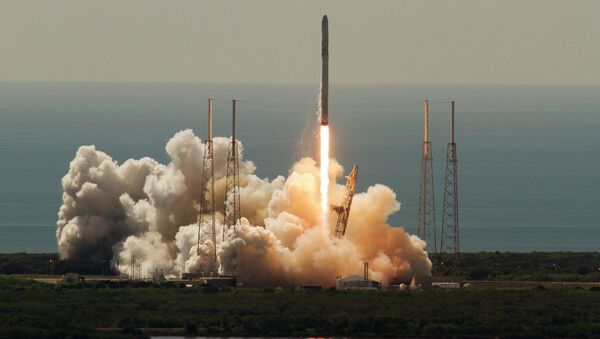The launch is the first attempt by SpaceX at sending the well-known Falcon 9 rocket back to space — and since, it's already been there back in April 2016, when it delivered necessary supplies to the crew of the International Space Station (ISS), it's been labeled as "recycled."
The @SpaceX #SES10 #Falcon9 rocket, w/ previously flown 1st stage seen just after sunrise, ready to be reused. Window opens at 6:27pm (ET). pic.twitter.com/Btwy1yy5GQ
— Michael Seeley (@Mike_Seeley) March 30, 2017
The aim of Thursday's launch is to send a communications satellite for the Luxemborg-based company SES into distant orbit.
Attempting to make history once again, the SpaceX rocket is scheduled for a launch window between 6:27PM ET and 8:57PM ET, taking off from Cape Canaveral, Florida.
Good morning Cape Canaveral! #SES10 @SpaceX pic.twitter.com/hZA4e6JikX
— SES (@SES_Satellites) March 30, 2017
The SpaceX project has been four years in the making, while Elon Musk, who heads the California-based company, has been trying to refine the technology.
Over recent months SpaceX has suffered a series of delays. In January, they confirmed that Falcon 9 would not launch after the rocket was involved in an accident.
However over recent weeks, in test flights, Falcon 9 has so far successfully landed on so-called "drone ships" floating in the ocean, whilst doing the same three times on land. The goal, Musk said, was to make rocket parts just as reusable as cars, planes or bicycles — thus making space travel and transportation more sustainable.
Back to back: The same #SpaceX Falcon 9 booster before two very different missions. 1 year apart. Future refurb will have quicker turnaround pic.twitter.com/7uOsOzNGCs
— Robin Seemangal (@nova_road) 30 March 2017
SpaceX officials have said that reusing hardware could slash costs-with each Falcon 9 launch costing over US$61 million, by 30 percent.
A spokesperson from the global investment banking firm Jefferies International stated that SpaceX has generated some attention, however it has also raised some serious concerns.
"There are worries about it failing, insurance implications, retrofitting turnaround, building up a critical mass of reused first stages in the warehouse," said Jefferies International.
SpaceX also has some competition, with Blue Origin — a company run by Amazon founder Jeff Bezos — already successfully landing its rocket, called the New Shepard.
"Reusability allows us to fly the system again and again,with each flight, we'll continuously improve the affordability of space exploration and research, opening space for all," said a statement on Blue Origin's website.
Martin Halliwell, chief technology officer at SES has refused to discuss the cost of the Falcon 9 flight, however he stressed that the launch will be historic.
"I think we are on the edge of quite a significant bit of history here. Now we are here to be the first ever mission to fly on a pre-flown booster. This is obviously hugely exciting," Halliwell said.
SpaceX launch could mark beginning of ‘low-cost’ era of space travel https://t.co/wg6Ovh0emc pic.twitter.com/aZeiRiMqq6
— RT (@RT_com) 30 March 2017
When the mission was announced in August 2016, Halliwell said the deal "illustrates the faith we have in SpaceX's technical and operational expertise."
The SES-10 satellite will be sent to a geostationary orbit, flying as high as 22,000 miles above the Earth before maneuvering into its designated orbit.


